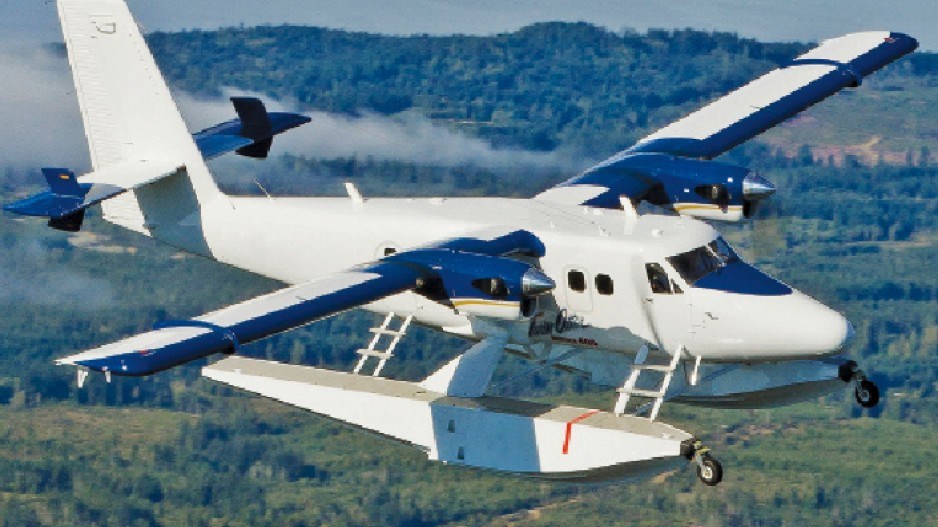Vancouver Island-based Viking Air Ltd. has pulled off what so many B.C. companies aspire to do: landing a large deal in China.
The floatplane maker recently announced its first Chinese sale: a $30 million deal to sell five Twin Otter Series 400 floatplanes to Meiya Air Co., Ltd. of Hainan province, and the possibility of additional sales beyond.
“It’s our first contract with China and we see it as a significant step,” said David Curtis, Viking Air’s president and CEO.
Landing the deal, Curtis said, has involved significant work. But the company started with a leg up: China came calling.
“[Meiya Air] started researching around the world about what are the best float planes and at the end of the day the Twin Otter pops up pretty much every time,” Curtis said. “So it was a matter of them finding us, frankly, and approaching us and wanting to learn about the airplane.”
Curtis said, as talks progressed, Viking Air sought outside expertise. “We’ve relied heavily on the federal government trade commission in Beijing and here locally to help us connect with other Canadian firms doing business in China and just understanding what the lay of the land is,” he said. “Everybody’s got this perceived concern over intellectual property protection, so we needed to understand that.”
Curtis said all aircraft need to be certified by a Transport Canadaequivalent in any country a company wants to sell into.
That means that while a Chinese company could try to copy the Twin Otter, the knockoff aircraft would still have to go through a rigorous certification process in any jurisdiction before it could be sold.
“There’s a significant barrier,” he said. “If [a firm is] certifying a product, they have to meet international standards if they want to sell it around the world.”
Curtis said Viking Air engaged Vancouver legal counsel to look into intellectual property concerns and pull the deal together.
He added that the deal is conditional on the Chinese Civil Aviation Authority reviewing and signing off on Transport Canada’s approval of the aircraft.
“That’s fairly normal and we don’t see a significant risk but it’s probably going to take a year.”
But Curtis said that, assuming Viking Air secures that approval, it’s then free to sell any further Series 400 Twin Otter aircraft into China. He added that with China in the process of opening up its skies to general aviation, the market is a key opportunity.
“When we talk about a general aviation airplane like a Twin Otter, there’s only about 500 of those airplanes in China today,” he said. “And if you compare that with the U.S., there’s a quarter of a million general aviation airplanes in the U.S.”
How does Viking Air plan to progress further in China?
Curtis said the company is still working out its strategy, and noted that there are still trade barriers such as a fairly significant import duty on aircraft.
“We’re going to be looking at ways of maximizing our market opportunities – likely through some kind of a joint venture,” he said. “That’s really the way that business works in China – you need a strong partner there.”
Doug Taylor, an international trade consultant with Small Business BC, said B.C. businesses still face significant barriers to doing deals with China.
“The biggest difficulties are the absolute need to have the right connections, [and] the ability and resources to take the time to develop those connections and understand that you are working with a government, not private companies – even though they look like private companies.”
He agrees partnerships are key to breaking into the highly competitive marketplace. But he said that, given the massive size of many Chinese companies, a B.C. company may find a more balanced partnership by joining forces with a similiar-sized Singaporean or other Asian firm with connections to China.
“They understand the culture and [its] nuances, they understand the language, and they understand how business is done,” he said. “That’s how I suggest you get into China.” •




